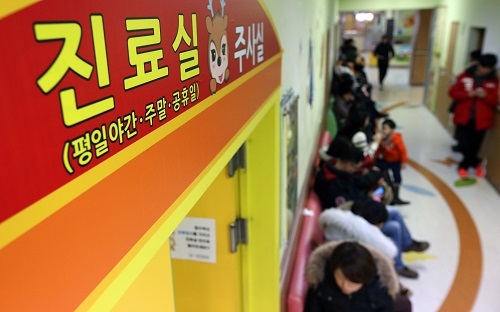South Koreans tend to feel disproportionately that they are unhealthy despite their long average life expectancy among the Organization for Economic Cooperation and Development member countries, state-led research showed Friday.
According to the report by the Korea Institute for Health and Social Affairs, 35.1 percent of Koreans aged 15 years and over deemed their health condition to be “good.” That was about half the OECD average of 69.2 percent. Only Korea and Japan scored less than 40 percent in the subjective health survey.

Countries like New Zealand, the U.S. and Canada showed up in the high 80s to 90 percent on average.
Despite the prevalent concern, Koreans’ life expectancy was recorded at 81.8 years, higher than the OECD average of 80.5 and among the best among member countries, the report titled “Health Status and Health Care Use of Koreans” said.
“The difference in perception and life expectancy derives from social and cultural views on health,” KIHASA said. “Different views on weight played a role.”
The institute said that South Koreans generally tended to equate obesity with bad health and that, compared to other OECD members, they were more likely to believe they were overweight. It also said women were more likely than men to think they were fat.
Koreans also spent double the time at hospitals of the OECD average. In a year, Koreans spent an average of 16.5 days on hospital beds, compared to the OECD’s 8.3.
 |
| Yonhap |
While the number of beds at hospitals increased drastically in the past decade, the number of doctors per 1,000 people as of 2013 was 2.2, the lowest after Turkey (1.8) and Chile (1.9).
Korean doctors, therefore, treated an average of 6,487 cases in a year as of 2011, 2.7 times the OECD average.
From news reports

